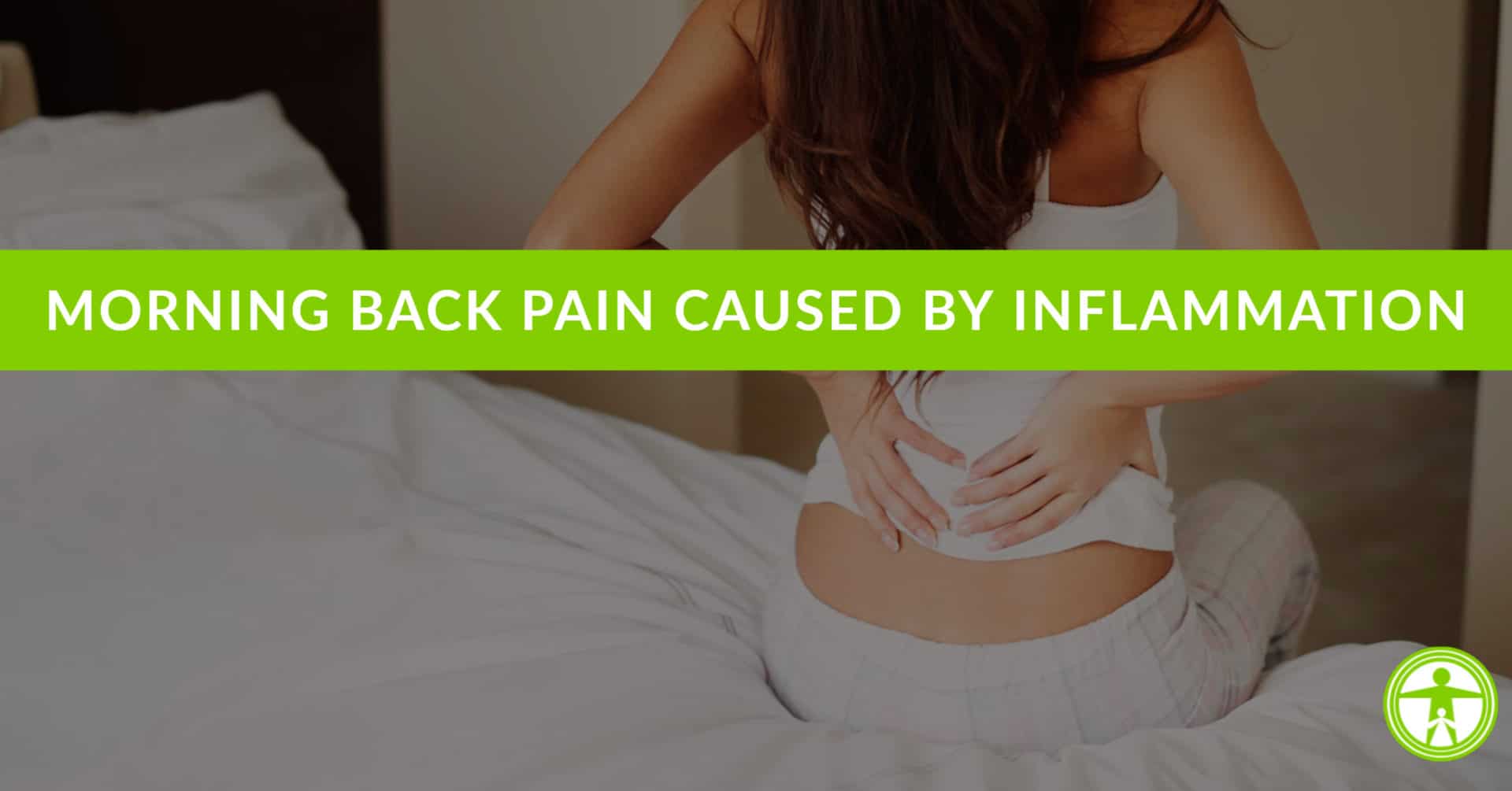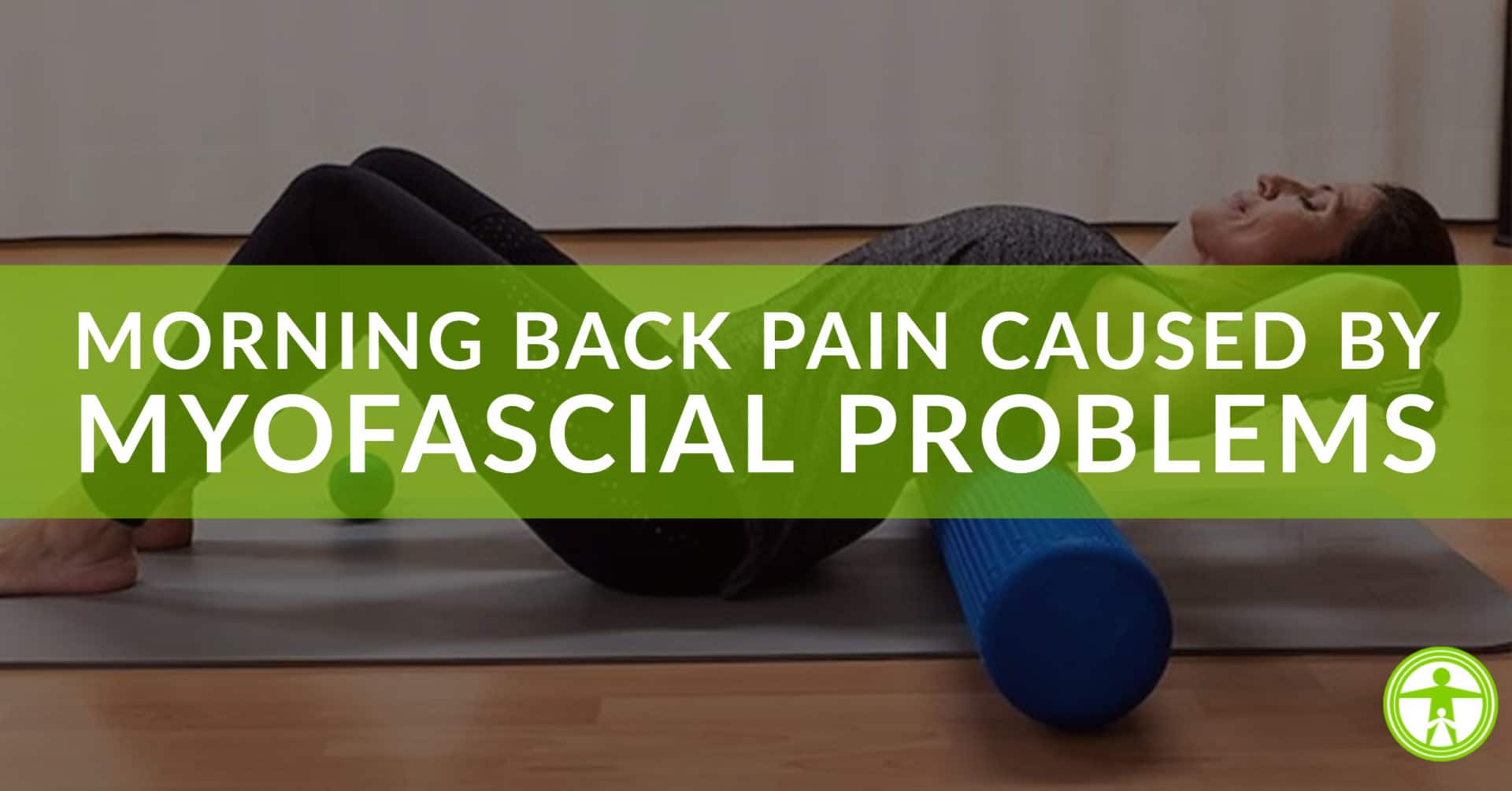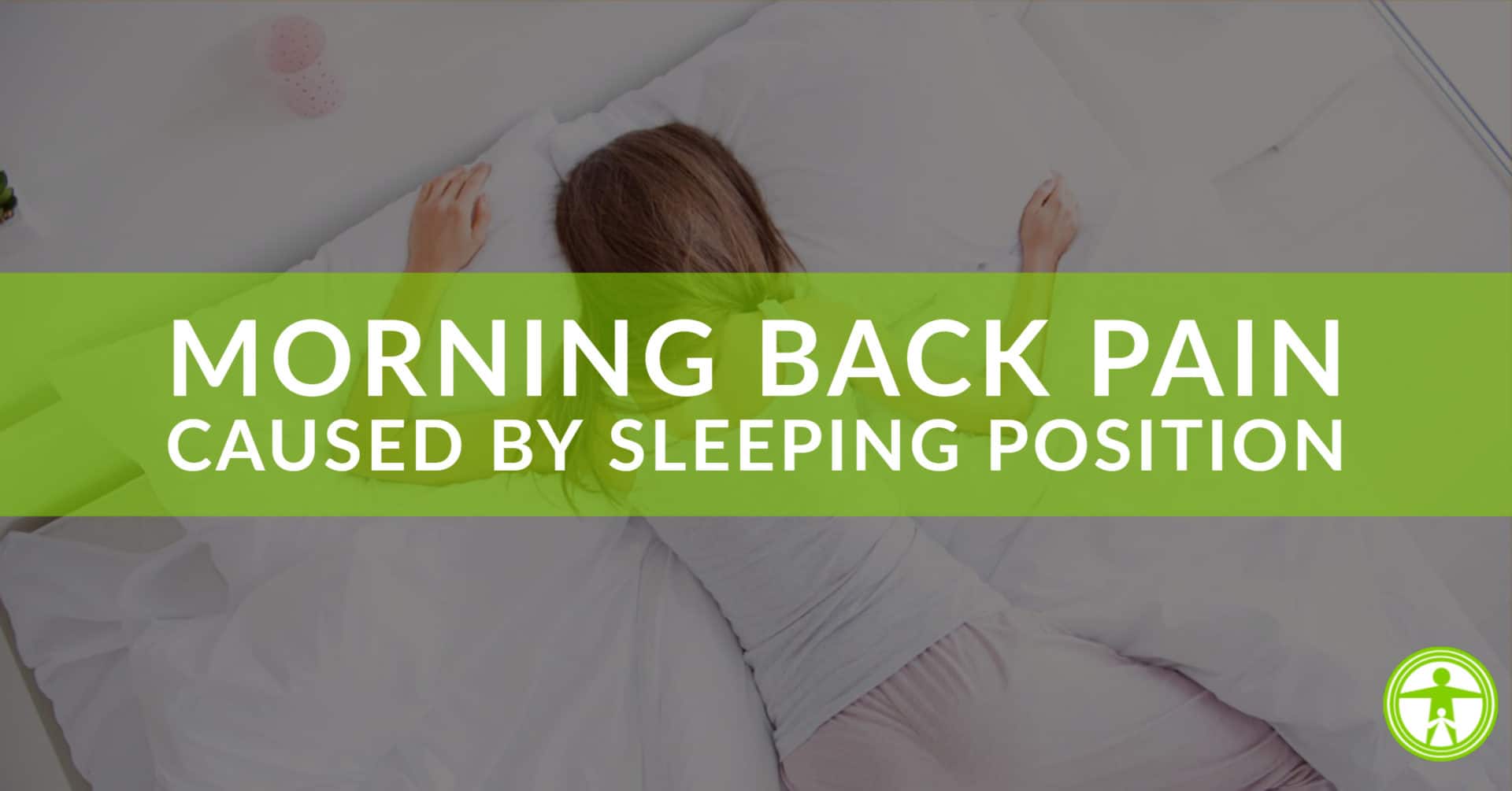“Hey doc, why do I get back pain in the morning?” is an all too often question I get asked as a chiropractor.
Have you ever gotten up in the morning and experienced back pain?
If so, you're not alone. Morning back pain is common and often felt first thing in the morning, especially from lying down to standing.
This type of back pain is usually the result of stiffness from long periods of rest or staying in the same position while you sleep.
So is sleeping dangerous for our backs? Of course not. And fortunately, waking up with back pain is usually not a serious problem either.
Having morning back pain is usually a sign of chronic back pain that is at its worst in the morning.
So if you find that you're waking up in the morning with quite a bit of pain, and that pain slowly decreases as the day progresses, you're likely experiencing an acute attack of back pain from several subtle chronic causes.
The most common causes of morning back pain include:
- Inflammatory Back Pain – inflammation from osteoarthritis, infection or some autoimmune process
- Myofascial Pain – failure to maintain your soft tissues (muscles, ligaments and tendons)
- Inflammaging – literally a chronic, mild inflammation associated with ageing
- Funky Sleeping Positions or a Bad Mattress – this is the most obvious reason, but not the only one

Morning Back Pain Caused by Inflammation
Inflammatory back pain is the most pathological. Some doctors will clump this type of back pain into something called a spondylarthropathy or spondyloarthritis.
Spondylarthropathy is arthritis of the spine or joints in your spinal column.
But don't get too worried about this, studies have confirmed that most morning stiffness and pain is not due to inflammation. How can you tell?
If your pain doesn't wake you up in the middle of the night, then it's likely not caused by inflammation or a spondylarthropathy.
If your pain does wake you up in the middle of the night, then getting some imaging (xrays, MRI, CT scans) would be recommended
Here's a good check list that can help determine if your morning back pain is caused by inflammation:
- signs of inflammation in other body parts, especially tendons (where they attach to bone), eyes, fingers or toes, colon
- a family history of spondyloarthritis (although it develops slowly, it’s a serious disease, so you’ll definitely know if someone in your family had it), or other autoimmmune diseases
- you respond fairly well to NSAIDs (Aspirin, Ibuprofen, etc)
- an infection in the weeks before your back trouble began
If we're going to be accurate, back pain that's caused by inflammation usually begins at night (not in the morning). In this case, the pain is simply considered “left over pain”

Morning Back Pain Caused by Myofascial Problems
There are really two common causes for widespread body pain (myofascial problems) and both of them are largely ignored:
- Failure to Perform Daily Maintenance – this includes improving personal flexibility, mobility, strength and balance
- Nutrient Deficiencies – not getting adequate nutrients in the form of vitamins, minerals and water
Failing to perform daily maintenance on ourselves results in our tissues becoming dysfunctional. This is a huge topic in of itself and goes way beyond this article. In short, I'd start with self-massage and heating to begin working on muscle knots.
Then I'd progress to mobility work (think yoga, tai chi, pilates) that is is designed to help you move better.
Finally, you need to work on strengthening your muscles to continue to support your movements.
When it comes to nutrient deficiencies, it's important to appreciate the fact that your inflammation could be due to bad biochemistry.
If you're not eating well or consuming large amounts of nutrients required for daily function, it's safe to say that your body isn't going to work well.
And one of the ways that your body signals to you that it's not happy, are symptoms like tightness, irritation, weakness, etc.

Morning Back Pain Caused by Inflammaging
Aging itself seems to be inflammatory (no matter how fit, skinny, and calm you are), which is known as “inflammaging“.
So, if you’re on the far side of middle age, or you’re younger but struggling with your weight and/or major long-term stress, chronic inflammation could be your issue.
Inflammaging involves white blood cell function (immune cells) and several tissues and organs, including the gut microbiota, and is characterized by a complex balance between pro- and anti-inflammatory responses.
So what can you do about it? No one really knows, but I'd pay attention to the following:
- Fitness is critical — it’s the closest thing we have to a miracle drug or a fountain of youth. But also avoid overdoing it.
- It’s also possible to some extent to eat an “anti-inflammatory” diet — which really just means a healthy diet, particularly one that doesn’t give our system major blood sugar regulation challenges.
- Fasting may also be worth experimenting with.
- Work on your anxiety and major sources of chronic stress
- And of course you should consider quitting any habits that are putting a strain on your biology, like smoking (uh… vaping), or drinking too much too regularly (more than a couple per day).

Morning Back Pain Caused by Sleeping Positions
Certainly, awkward sleeping positions and a bad mattress or pillow can be to blame.
In 2015, Steffens et al found that most “back attacks” occur in the first few hours of the day.
They also identified an “awkward posture” in the two hours proceeding the attack as the second biggest risk factor (after “distracted during an activity”).
Although their study wasn’t perfect, the results were too strong not to take seriously and demonstrated that an “awkward sleeping posture” was more likely to be the cause of acute back pain, than the much more traditional causes such as sloppy weight lifting movements.
Based on this evidence alone, we can guess that morning back pain might be so common is that sleeping is a rich source of awkward postures. So if you're suffering from chronic morning back pain, paying attention to or trying to identify if your sleep position or mattress is the cause, is something to consider.
Sleeping often involves slightly awkward positions held for periods long enough to cause sustained compression, pinching, and oxygen starvation of tissues (which may or may not have been vulnerable or irritated to begin with).
The dose makes the poison: it doesn’t have to be an obviously terrible spine position to cause trouble. Just a little awkwardness will do the job if you’re stuck that way for long enough.
The most likely habitual position to cause trouble is face down.
I do not think that sleeping face down is a universally evil sleeping position, but, based on years of anecdotal reports from patients, I do think face-down sleeping can mess up a lot of backs.



